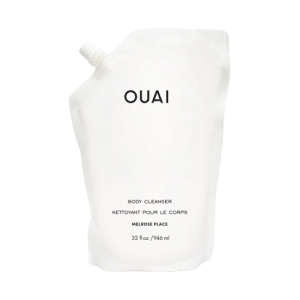Dry skin, medically known as xerosis, is a prevalent issue that affects people of all ages. While it may seem like a minor inconvenience, untreated dry skin can lead to discomfort, itching, and even more serious skin conditions. This guide will provide an in-depth understanding of dry skin, its causes, and practical tips and remedies to manage it effectively.
Dry skin occurs when the skin loses its natural moisture or fails to retain adequate hydration. This can result from external factors, internal conditions, or a combination of both. While it’s often seasonal, chronic dry skin may require ongoing care.
Causes of Dry Skin – best lotion for dry skin
Environmental Factors:
Weather Changes: Cold, dry air during winter months is a common cause.
Low Humidity: Indoor heating and air conditioning can deplete moisture levels.
Lifestyle Factors:
Hot Showers: Prolonged exposure to hot water can strip the skin’s natural oils.
Harsh Products: Soaps, detergents, and alcohol-based skincare products may exacerbate dryness.
Medical Conditions:
Eczema and Psoriasis: Chronic skin conditions often lead to severe dryness.
Hypothyroidism: Reduced thyroid function can decrease skin oil production.
Aging: Natural aging reduces oil production, making dryness more common.
Medications: Certain drugs, such as diuretics and retinoids, may contribute to dry skin.
Recognizing Symptoms
Dry skin can manifest in several ways:
Flakiness or peeling
Rough texture
Tightness, especially after washing
Itching and redness
Cracking or bleeding in severe cases
Tips for Managing Dry Skin
Hydrate from Within:
Drink plenty of water daily to maintain skin hydration from the inside out.
Consume foods rich in omega-3 fatty acids, such as salmon and flaxseeds, to support skin health.
best lotion for dry skin
Choose the Right Skincare Products:
Opt for gentle, fragrance-free cleansers to avoid irritation.
Use moisturizers containing humectants like glycerin, hyaluronic acid, or urea to draw moisture into the skin.
Select products with occlusives such as petrolatum or shea butter to seal in hydration.
Develop a Consistent Routine:
Cleanse: Wash with lukewarm water and a gentle cleanser.
Moisturize: Apply a rich moisturizer immediately after bathing to lock in moisture.
Exfoliate: Gently exfoliate once or twice a week to remove dead skin cells and improve absorption of skincare products.
Adapt to the Environment:
Use a humidifier to maintain indoor humidity levels, especially in winter.
Protect skin from harsh weather by wearing gloves and scarves.
Limit Exposure to Irritants:
Avoid prolonged hot showers and baths.
You can read the globes by hand to clean the product
Natural Remedies for Dry Skin
Honey: A natural humectant, honey can be applied directly to the skin for hydration and soothing.
Aloe Vera: Its anti-inflammatory properties help calm irritation while providing moisture.
Oatmeal Baths: Colloidal oatmeal can relieve itching and nourish dry skin.
Coconut Oil: Rich in fatty acids, it helps restore the skin barrier.
Professional Treatments
For persistent or severe dryness, consider consulting a dermatologist. Possible treatments include:
Prescription Creams: Such as those containing hydrocortisone or ceramides.
Phototherapy: For conditions like eczema, light therapy may help.
Dietary Supplements: Omega-3 supplements can benefit skin health.
Preventative Measures
Regular Moisturizing: Apply lotion multiple times a day, especially after handwashing or exposure to water.
Gentle Clothing: Wear soft fabrics like cotton to prevent irritation.
Balanced Diet: Incorporate plenty of fruits, vegetables, and healthy fats.
Sun Protection: Use broad-spectrum sunscreen to protect against UV damage, which can worsen dryness.
Tailored Solutions for Different Skin Types
For Sensitive Skin:
Avoid products with alcohol, fragrances, or dyes.
Patch-test new skincare items before full application.
For Aging Skin:
Use creams with retinoids or peptides to boost collagen production.
Apply richer, oil-based moisturizers for deeper hydration.
For Severe Dryness:
Layer moisturizers: Start with a lighter lotion and follow with a heavier cream.
Consider overnight treatments, such as applying a thick balm and wearing cotton gloves.
Myths About Dry Skin
Myth: Drinking water alone cures dry skin.
Truth: While hydration is important, topical care is also essential.
Myth: Oily skin doesn’t get dry.
Truth: Even oily skin can experience dehydration or dryness in certain areas.
Myth: Scrubbing harder removes dryness.
Truth: Over-exfoliation can worsen dryness and damage the skin barrier.
Final Thoughts
Dry skin is a manageable condition with the right approach. By understanding its causes, adopting a consistent skincare routine, and using suitable remedies, you can maintain a healthy, hydrated complexion. Whether through lifestyle changes, natural remedies, or professional treatments, addressing dry skin promptly ensures comfort and reduces the risk of complications. With dedication and care, you can keep your skin soft, smooth, and resilient all year round.




